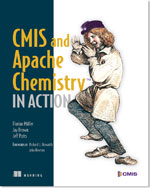It has been far too long since our last Apache Chemistry cmislib release, but we finally managed to get one out. The new release, 0.6.0, features support for the browser binding as well as many fixes contributed by the community.
If you make no changes to your code the library will continue to use the Atom Pub binding, by default. But, the browser binding, which communicates with CMIS 1.1-compliant repositories using HTML forms and JSON, is often preferable because it may be more performant than the XML-based Atom Pub binding.
To use the new browser binding, import it, then pass it to the CmisClient constructor, like this:
from cmislib.browser.binding import BrowserBinding client = CmisClient('http://localhost:8081/chemistry/browser', 'admin', 'admin', binding=BrowserBinding())
From there everything works like it always has.
For more information, please see the docs. If you have issues, please file a Jira with as much detail as possible, including the vendor and version of the repository you are working with. And if you have a fix, include that in your Jira. Contributions are welcome!


 To celebrate the launch of the CMIS and Apache Chemistry book in print, Manning is offering 43% off through August 5, 2013. To get the discount, use promo code pbcmisml when you buy the book at
To celebrate the launch of the CMIS and Apache Chemistry book in print, Manning is offering 43% off through August 5, 2013. To get the discount, use promo code pbcmisml when you buy the book at